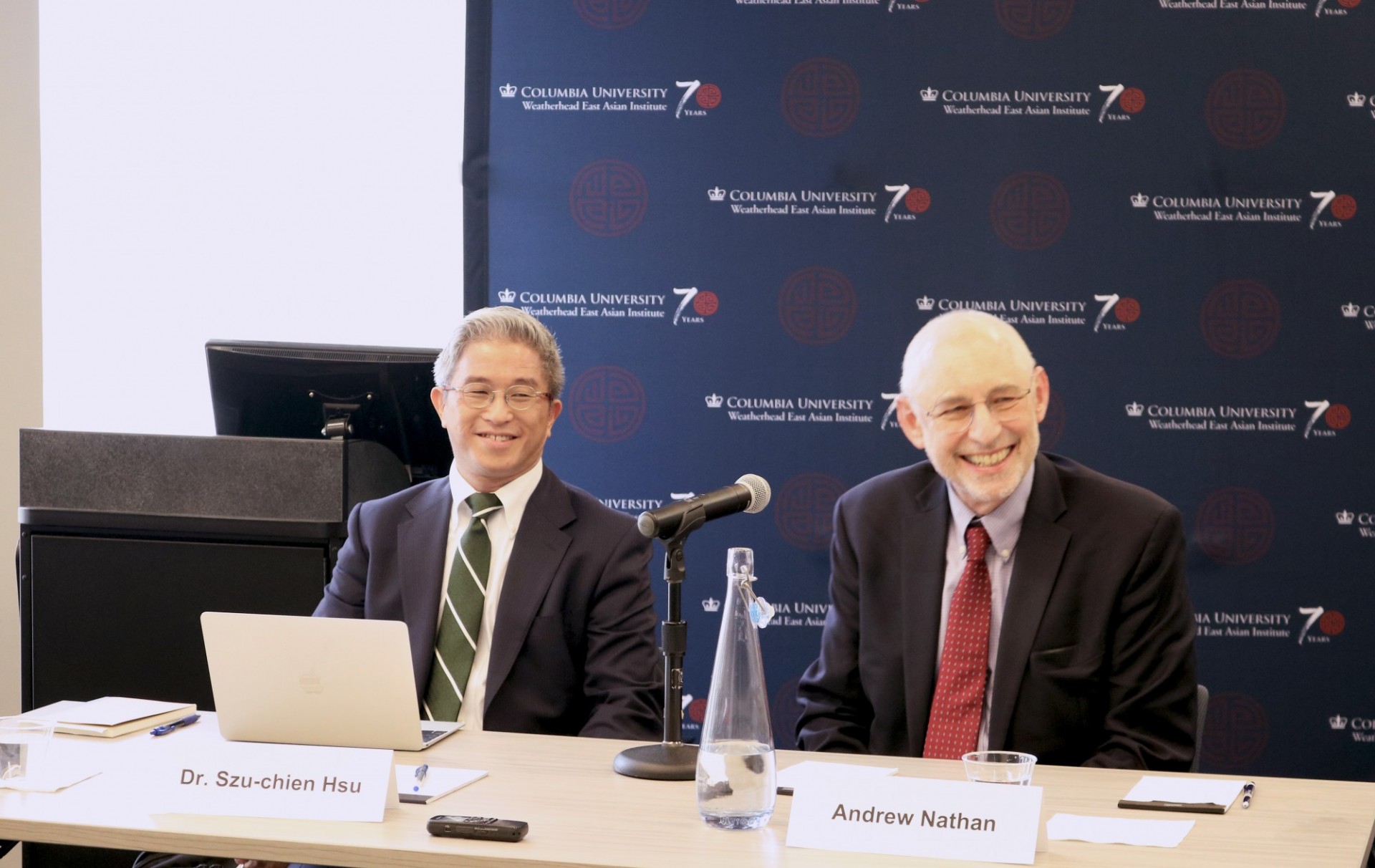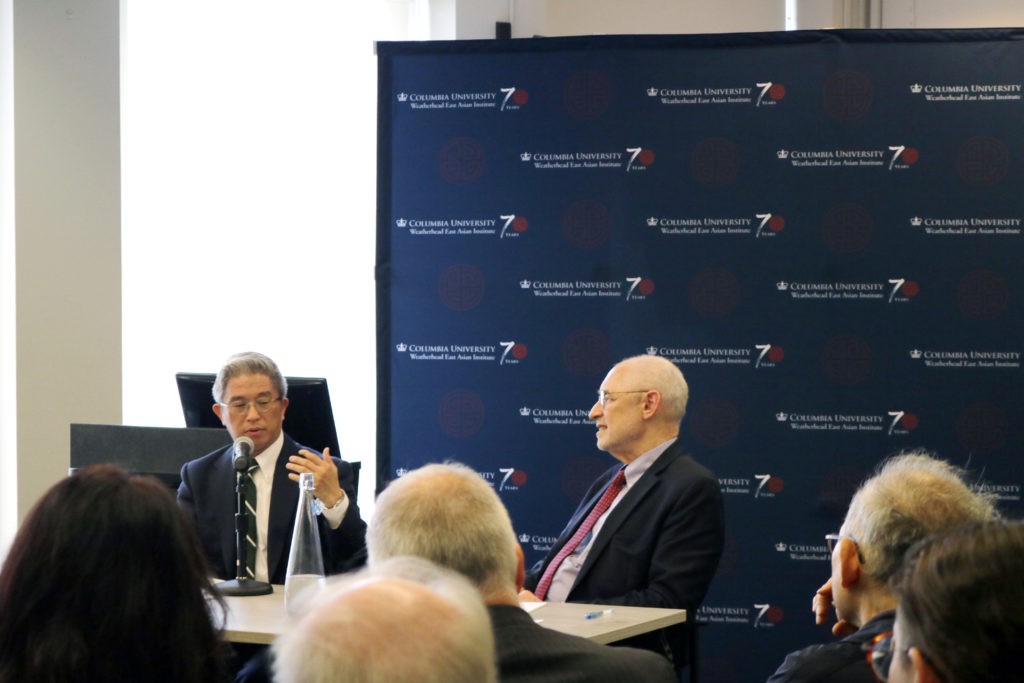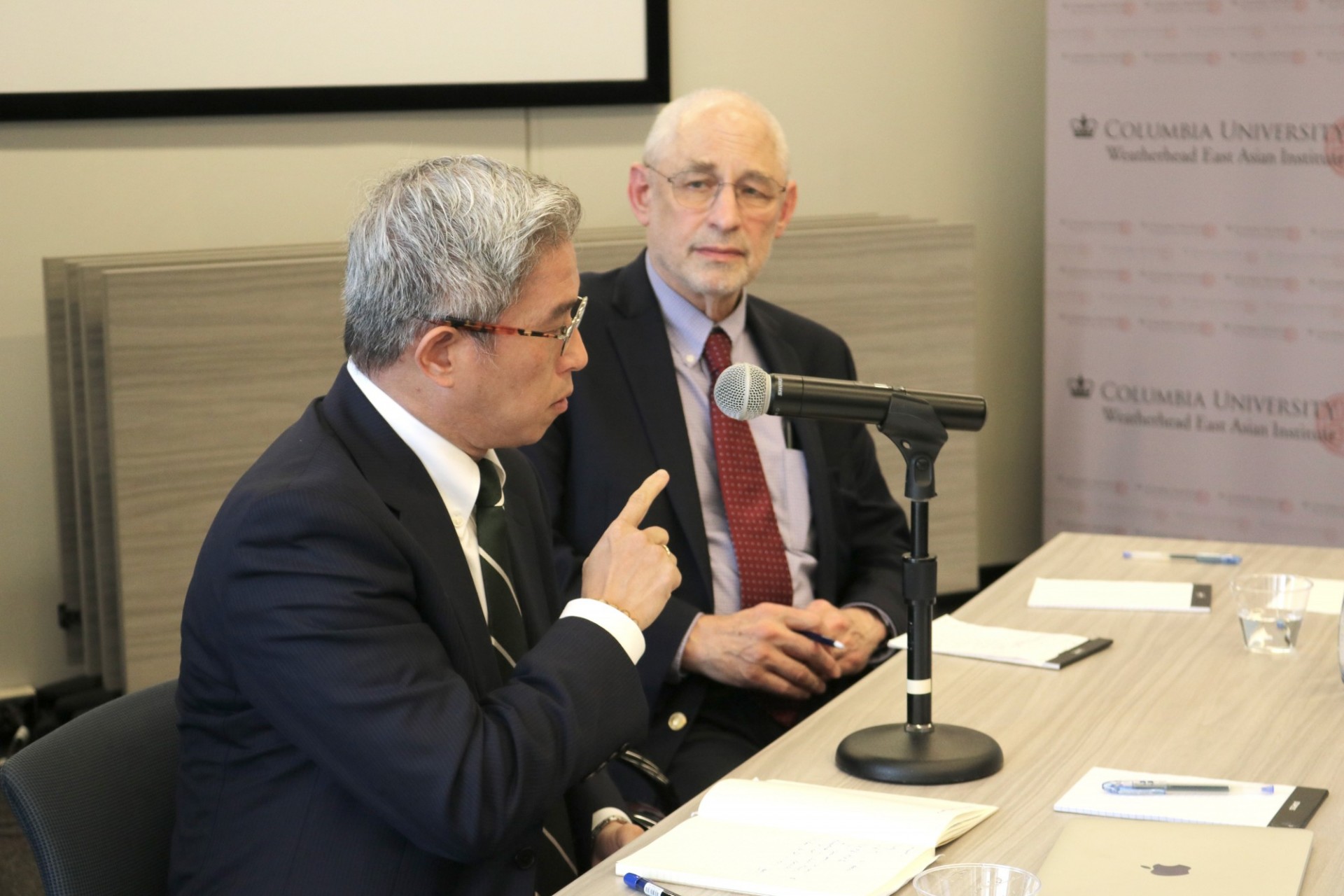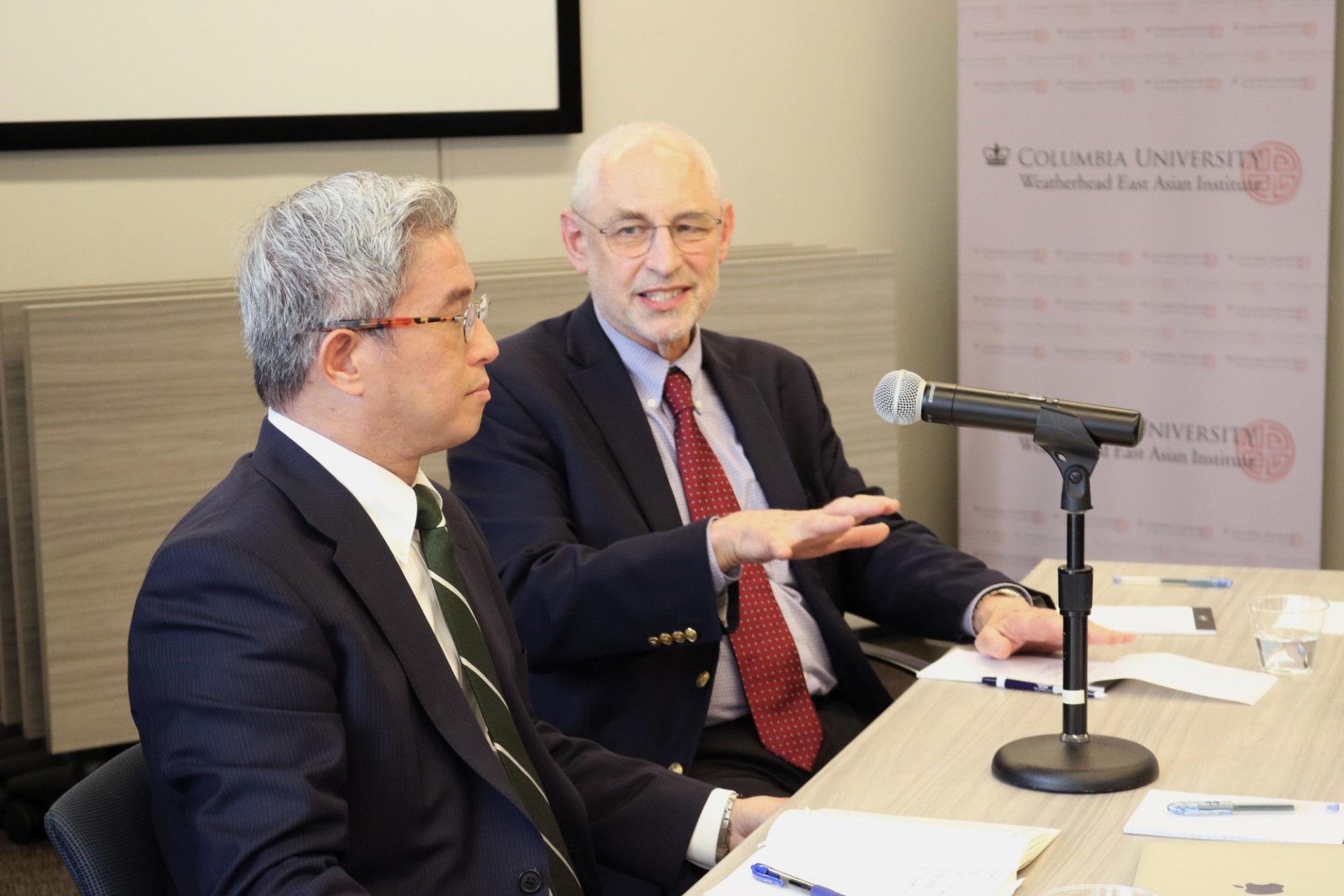June 13 Event: “A Conversation with Taiwan’s Deputy Minister of Foreign Affairs”

A Conversation with Taiwan’s Deputy Minister of Foreign Affairs, Dr. Szu-chien Hsu – Taiwan’s response to the US Indo-Pacific Strategy
Featuring Dr. Szu-chien Hsu
Moderated by Class of 1919 Professor Andrew Nathan
On June 13, Taiwan’s Deputy Minister of Foreign Affairs Dr. Szu-chien Hsu visited the Weatherhead East Asian Institute to discuss Taiwanese foreign policy and present Taiwan’s response to the US Indo-Pacific Strategy.
The event was well attended and drew a crowd of students and faculty, as well as journalists and other professionals from outside the University. Hsu, a Columbia alumnus, was joined by WEAI’s Professor Andrew Nathan, who moderated the event.
In his opening remarks, Hsu explained how Taiwan’s New Southbound Policy, first announced in 2016, would synergize with the US’ strategy toward the Indo-Pacific. He introduced four discrete pillars to the Taiwanese strategy: democracy, security, economics, and “Warm Power.”
When implemented together, these four pillars comprise a Taiwanese policy strategy that stands to defy “the authoritarian model of governance, showing the people in China as well as all the people in the Indo-Pacific that there is a ‘better way,’” Hsu said.
“Taiwan is determined to persist in shining as a beacon of hope to the region that we the Taiwanese have made the decision to be part of something free, fair, just, and open,” said Hsu. “We have chosen freedom, democracy, rule of law, diversity, and tolerance.”
“Democracy, or good governance,” Hsu said, is “the most vital common denominator between Taiwan and America.” This includes freedom to choose one’s faith, freedom of expression, and freedom from coercion, he said.
Hsu noted “dire threats to democracies” and attempts to destabilize institutions from authoritarian regimes through the dissemination of disinformation and other technological campaigns such as the installation of facial recognition systems.
“To tackle these, the Taiwanese government is mooting legislation on countering disinformation in order to equip our law enforcement with the necessary legal tools,” Hsu said.
He noted also Taiwan’s cooperation with the US on a regional religious freedom dialogue, and the Global Cooperation and Training Framework (GCTF) workshop: a platform co-organized by the two governments to share knowledge and ideas, and build networks between countries of the Indo-Pacific.
On the security front, Hsu explained that Taiwan has sought to bolster its defense through the development of missile systems and other measures, as well as its cooperation with the US, including through a formal request to purchase additional F16V fighter aircraft. This cooperation with Washington extends to nontraditional security issues pertaining to cyber security and new technology.
As part of its efforts to play “a more forceful and proactive role to fortify regional peace and stability,” Taiwan has also offered maritime patrol support to allies Palau and Nauru, Hsu said.
Economically, Taiwan has sought to improve relations with partners in the region. According to Hsu, bilateral trade with countries covered under the New Southbound Policy grew by 22% between 2016 and 2018, to a total of $117 billion. Incoming investment in Taiwan over the same period grew by more than 60%. Hsu noted that Taiwan has also expanded its participation in overseas investment and development, and has budgeted $3.5 billion toward official development assistance (ODA).
Hsu also expressed Taiwan’s willingness to facilitate the relocation of companies to Taiwan, as supply chains are being interrupted by trade tensions between the US and China.
The so-called “Warm Power” pillar covers the soft power policies that add to Taiwan’s appeal, both as a partner and a travel destination, explained Hsu. This includes the provision of scholarship opportunities for students and teachers from New Southbound Policy partner countries to conduct exchange, the promotion of culture and tourism through global marketing and visa relaxation, and the sharing of Taiwan’s medical expertise to strengthen local healthcare systems, among others.
The results of the New Southbound Policy and its “Warm Power” strategy will be on full display at the Yushan Forum, an annual event to be attended by regional stakeholders. “We want it to be a platform for the exchange of thoughts and ideas, making Taiwan a hub of novel and innovative solutions to new challenges in the region,” Hsu said.
Image Carousel with 3 slides
A carousel is a rotating set of images. Use the previous and next buttons to change the displayed slide
-
Slide 1: Dr. Szu-chien Hsu discusses Taiwan’s foreign policy at the Weatherhead East Asian Institute.
-
Slide 2: image
-
Slide 3: image

Dr. Szu-chien Hsu discusses Taiwan’s foreign policy at the Weatherhead East Asian Institute.


